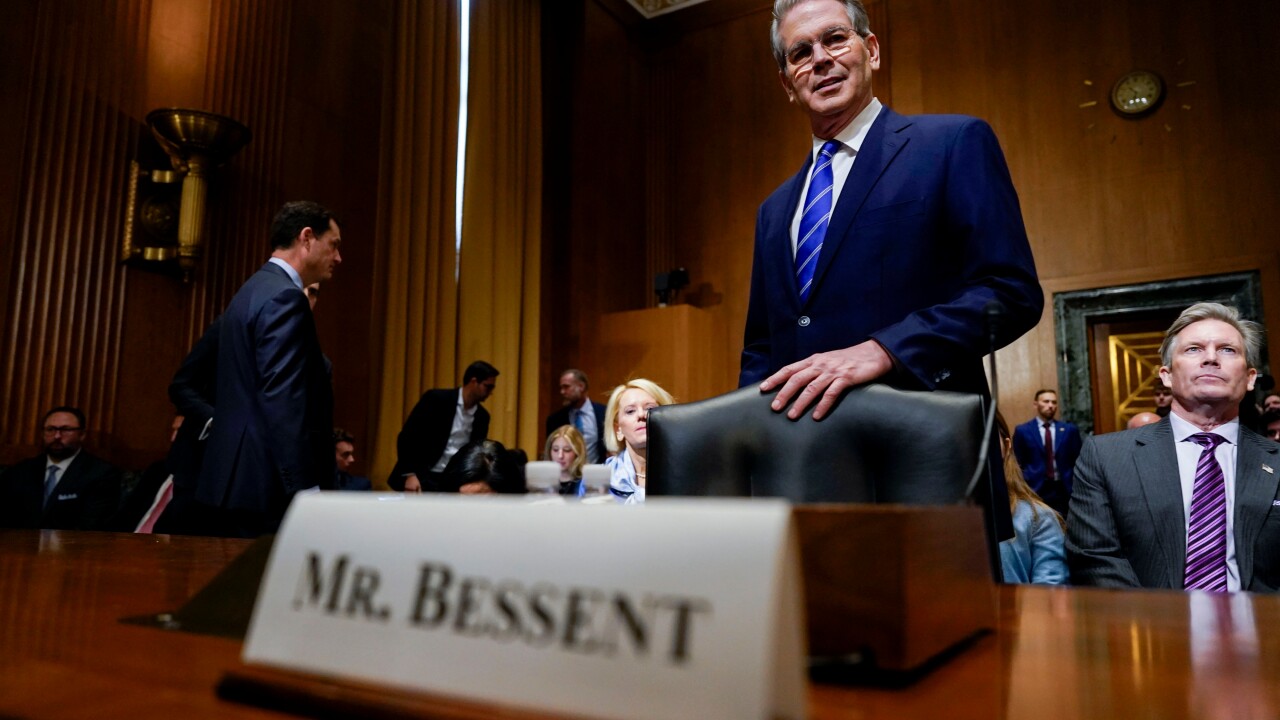WASHINGTON — The Federal Deposit Insurance Corp. on Tuesday finalized a rule that will require big banks to keep readily available records of their insured deposits.
The final rule, modified in part from a proposal issued by the agency in February, will require 38 financial institutions to maintain "complete and accurate" data on each depositor, and set up their systems so that the data is accessible within 24 hours of a failure.
"Timely access to insured deposits when a bank fails is critical to maintaining public confidence in the banking system," FDIC Chairman Martin Gruenberg said in a press release. "The FDIC is proposing to achieve this goal by generally requiring banks with two million or more deposit accounts to improve the quality of their deposit data and make changes to their information systems."
The final rule was softened slightly from the earlier plan. Banks will get more time — three years instead of two — to implement the rule. It will also include different requirements for so-called pass-through accounts — like trust deposits and brokered deposits that are indirectly insured. The rule will go into effect April 1, 2017.
The final rule is still more stringent than an earlier regulation that was finalized after a fight with the industry in June 2008.
The FDIC has argued that it needs quicker access to banks' data on insured deposits in order to respond to a failure in a timely manner.
"The FDIC is required to provide depositors with access to their insured accounts as soon as possible after an institution fails," the agency said in the press release. "Typically, this money is available by the next business day."
But industry representatives have argued that it creates an unnecessary burden on the institution, noting that a large bank failure is unlikely to occur as rapidly as the FDIC rule suggests.
"It's totally unnecessary because they're not going to liquidate those 38 large banks," said Bert Ely, a banking consultant based in Alexandria, Va. "That's a fundamentally absurd proposition."
The FDIC estimated in February, based on the proposal, that the rule would cost about $328 million to implement.
"What value is produced for anybody... in return for that $328 million?" said Ely. "I would say absolutely zero."
In addition, the alternative data recordkeeping requirements for pass-through accounts might pose some jurisdictional issues.
With the final rule, banks are required to have assigned unique identifiers to the owners of all deposit accounts held through a third party. For those accounts that have "transactional features" – like permitting transfers and withdrawal – the banks would also need to be able to obtain additional data from the third parties within 24 hours of failure.
"Can the FDIC mandate that those third parties be prepared to provide that information over the weekend?" said Ely. "I'm not sure they can."





